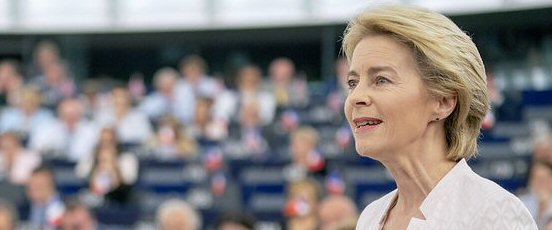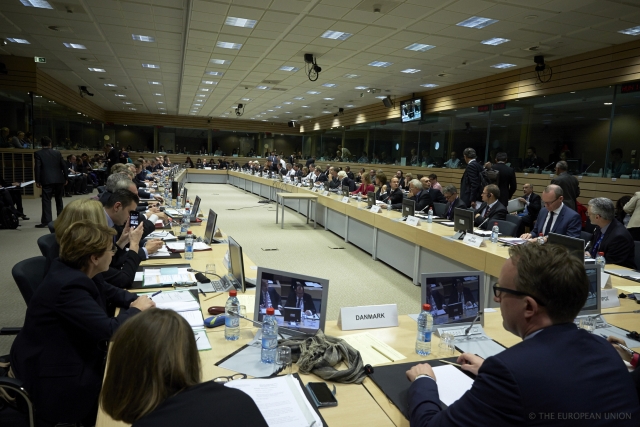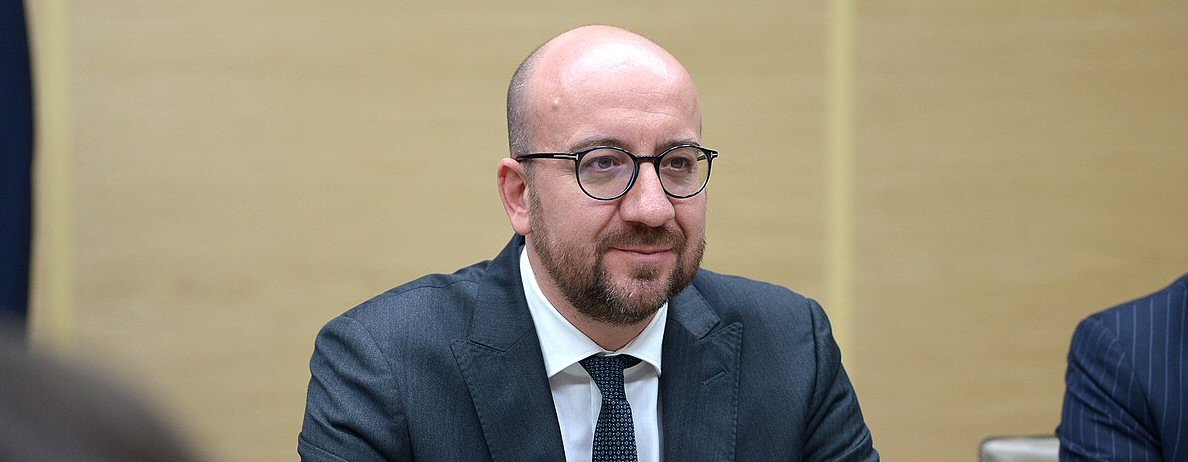The Commission has published without fanfare on its MFF website the breakdown of national pre-allocated ceilings for direct payments and rural development for the coming 2021-2027 programming period as well as their scheduling over the seven-year period. These figures are based on the European Council’s MFF conclusions in July 2020 and assume that these conclusions will eventually receive the approval of the European Parliament. As I write this, this is not a foregone conclusion. Talks between the German Presidency and the Parliament negotiators on the MFF package made no progress yesterday evening despite an attempt by the Presidency to break the logjam by offering to find additional funds for budget lines supported by the Parliament at a mid-term review of the MFF.… Read the rest
The CAP in the 2021 budget negotiations
The Council Presidency, European Parliament negotiators and the Commission have had several trilateral meetings during August and September to try to reach agreement on the seven-year Multi-annual Financial Framework (MFF) following the European Council conclusions in July. The aim is to reach agreement by the end of October, but according to the Parliament’s negotiators, these discussions are not going well. The Parliament is pointing to the safety net procedure in the Treaty which, in the event of no agreement, provides for a contingency plan which would allow sectoral programmes to start functioning on 1 January 2021 on the basis of the 2020 amounts.… Read the rest
Commission proposes increased agricultural spending in reinforced MFF
My previous post discussed the rationale for the Commission’s revised MFF proposal put forward on 27 May 2020 which includes a proposal for a European Recovery Instrument (ERI) to finance front-loaded expenditure in the next MFF plus a slightly revised ‘standard’ MFF (which the Commission refers to as a ‘reinforced’ MFF). In broad terms, the reinforced MFF allows for commitment appropriations amounting to €1,100 billion over the 2021-2027 period, while the ERI would help to finance a further €750 billion of spending in the 2021-2024 period, in constant 2018 prices. Together, they add up to a total proposed spending of €1,850 billion over the MFF period.… Read the rest
Commission proposes European Recovery Fund as part of revised 2021-2017 MFF
The stakes for the European Union have never been higher. In a year when the latest Commission economic forecasts project a 8% decline in GDP as a result of the measures taken to contain the spread of the coronavirus, the question is whether the European Union can provide a response that is macroeconomically significant and builds on the principles of solidarity inherent in the concept of a common citizenship. If it fails to deliver, we can say good-bye to the European Union and prepare to take our chances in an unforgiving geo-political world where the only other leaders are an increasingly authoritarian and self-centred China and an increasingly unpredictable and self-centred America.… Read the rest
Financing emergency aid to address market disruption due to COVID-19
There has been strong pressure on Commissioner Wojciechowski to get the Commission to do more to protect farmers and agricultural markets from the adverse effects of the lock-down responses to the coronavirus pandemic.
The Commissioner has argued that there is no funding available for these measures in the EU budget. In this post, I assess the funding that may be available to the Commissioner. I conclude that available funding is limited but not exhausted. It now seems time to make use of the crisis reserve that was put in place for exactly this eventuality as well as unused margins under the European Agricultural Guarantee Fund (EAGF) in the EU budget.… Read the rest
External convergence debate continues to simmer
One of the many issues that will need to be resolved when Heads of State and Government get around to once again considering the Multi-annual Financial Framework (MFF) 2021-2027 is what position to take on the external convergence of CAP direct payments.
The Commission has proposed a further narrowing of the differences in the average value of direct payments per hectare between Member States in the post-2020 CAP framework. For a number of countries from Central and Eastern Europe nothing less than full equality by the end of the MFF period will be acceptable. There is equally strong push-back from another group of Member States that argue there should be no further reductions in the CAP joint pillar allocations for the purpose of redistribution among Member States.… Read the rest
Coronavirus uncertainty as CAP decisions are postponed
There is increasing focus on how the coronavirus pandemic is likely to affect agricultural markets, food supply chains and farm incomes (for example, the series of IFPRI Resources and Analyses on COVID-19). Panic buying of long-life staples – as well as toilet roll, of course – led to temporary shortages on supermarket shelves but supplies were very quickly replenished.
In the medium-term, there are concerns that labour shortages, logistical difficulties in transporting goods across borders and falling export demand have the potential to cause disruption. The various actors in the European food chain issued a statement on 19 March calling attention to likely operational difficulties and asking the Commission to ensure that free movement of goods within the single market can continue, including through managing ‘green lanes’ at borders, to allow the food chain to function effectively.… Read the rest
President Michel’s solution to the MFF conundrum
In my previous post I discussed the challenges facing European Council President Charles Michel as he took over responsibility from the Finnish Presidency to prepare the draft conclusions on the Multi-annual Financial Framework for the coming meeting of the European Council on 20 February next.
The Finnish Presidency proposal had been attacked on all sides as unsatisfactory. Yet, in that previous post, I speculated that Mr Michel was unlikely to hear anything very different to what the Finnish Presidency had heard when charged with forwarding the ‘negotiating box with figures’ to the December 2019 meeting of the European Council.… Read the rest
Charles Michel’s MFF juggling act
During the past few weeks, the President of the European Council Charles Michel has been meeting national sherpas to sound out Member State positions regarding the Commission’s proposal for the next Multiannual Financial Framework (MFF) for the period 2021-2027. In the next few weeks he will be meeting national leaders face-to-face.
He has called a special European Council meeting which, ominously for national leaders who value their beauty sleep, is scheduled to start on 20 February but which notably has no termination date or time. Mr Michel may plan to take a leaf out of the Saudi Crown Prince Mohammed bin Salman’s playbook who famously kept the rich elite of Saudi Arabia under lock and key in a luxury hotel until they agreed to part with some of their money.… Read the rest
What explains the differential cuts in CAP P1 and P2 spending in the Commission’s MFF proposal?
As I discussed in this post, the Finnish Presidency has been tasked with presenting a first draft of the MFF ‘negotiating box’ with numbers prior to the next European Council meeting 12-13 December 2019. This will be no mean feat given the wide differences of opinion between the ‘frugal five’ Member States – Austria, Denmark, Germany, the Netherlands and Sweden – that want overall a smaller budget than what the Commission has proposed, and other Member States that want to reverse some of the Commission’s cuts in cohesion and agricultural spending (Politico’s Lily Bayer goes through the different alliances in this article published today).… Read the rest








